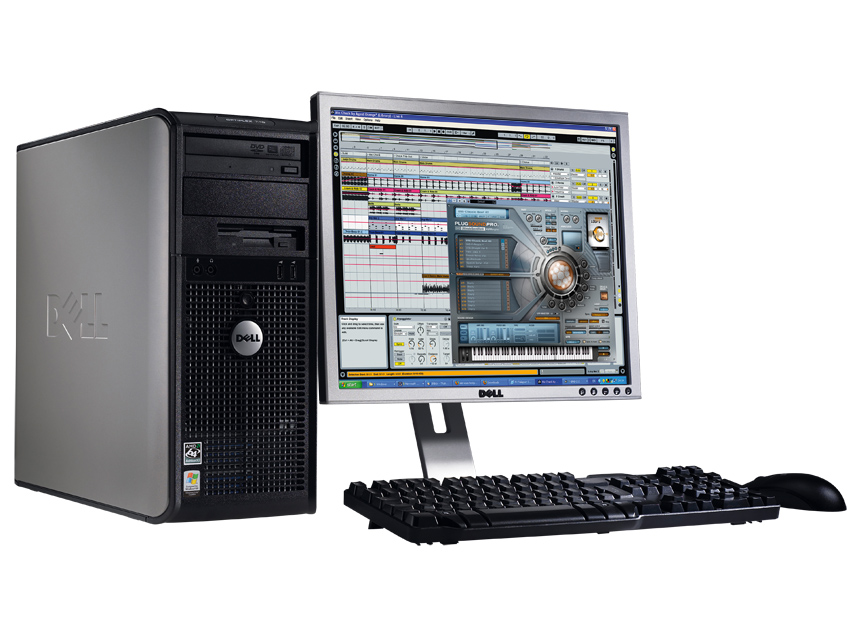15 tips for computer music beginners
If you're just starting out, you need to start here...

Making music on a computer is now easier than ever, but if you´re just starting out, it can still seem like a daunting prospect.
Don´t panic, though - MusicRadar has put together 15 general tips to help ease you in gently…
1. It should be a given, but we´ve got to remind you to read the manuals, particularly for your sequencer. They really are your passport to knowledge and experience. Try leaving them in the bathroom or taking them on the bus to work/school/college with you every day.
2. Don´t be tempted to buy everything now. If you get too much software in at once, you simply won´t have time to master it all and will end up missing things.
3. Keep your system as simple as possible. Even experienced producers like to reinstall everything from time to time, as there´s nothing more productive than a blank canvas, so don´t rush to acquire every free plug-in you come across. Check with forums and friends and stick to the really good ones.
4. Try your hand at a few different styles when you´re starting out, as this is the time when habits become cemented. Experimenting with non-conventional techniques for your main genre will stand you in good stead and help your productions to stand out.
5. Try to pick a good spot for your setup. You want somewhere comfortable but without too many distractions, and ideally as far away as possible from anybody who´ll complain about the noise.
Want all the hottest music and gear news, reviews, deals, features and more, direct to your inbox? Sign up here.
6. Pick the right platform for you, not just the most familiar option (you´ll learn fast). These days PCs and Macs of equivalent spec are roughly the same price, so it might just come down to your choice of software (Sonar means PC, Logic means Mac). But remember, Macs can now run Windows natively too.
7. Learn a little about acoustic treatment before you finalise your space. Speakers in corners muddy the bass; speakers halfway between floor and ceiling set up standing waves; hard walls create nasty brightness; straight lines and square rooms are your enemies.
“Don´t rush to acquire every free plug-in you come across. Check with forums and friends and stick to the really good ones.”
8. Get hold of some acoustic tiles. The best place to look is on eBay, as there are some fantastic bargains to be had. You don´t actually need to cover every surface, but if a hard wall is within sight of the front of your speakers it´s probably worth putting up something to minimise the reflections.
9. The most vital tool when mixing is a decent set of monitor speakers. You simply cannot expect to create a quality mix that´s free of surprises on other systems unless you have a high quality and accurate reference point to begin with. So don´t skimp. Save, save and save some more until you can get some proper monitors.
10. Ignore forums! No, seriously: for more general questions and debates, they´re a hive of ill-informed and subjective speculation masquerading as knowledge! For example, never rely solely on buying advice from a forum - you´ll get 30 answers, even if there are only ten products to choose from. But also…
11. Use forums! They´re great for helping you with your problems, because somebody somewhere will almost certainly have had the same issue you´re having. Got latency troubles with your soundcard? A plug-in won´t open any more? Google it and you´ll almost certainly find a helpful forum post somewhere.
12. Don´t blow all your money on gear until you know you have at least a passion for music production and, ideally, some aptitude. Not every great musician is a great producer and vice versa - they´re different skill sets. Begin with some free software - it´ll certainly be good enough to get you started.
13. If you´re a DJ or aspiring producer, consider going into a pro studio to finish your first couple of tracks. It´s best to wait until you´ve started a few on your own and know the basics, then go in with your idea to watch a pro at work and ask them questions.
14. If you want to make music your life, don´t waste time on intense recording courses. These are designed to teach production and engineering, while you should be concentrating on writing and playing. If you love the technical side, though, they can be a great way in.
15. Don´t try to run before you can walk. It´s easy to have grand ideas, but if you set your sights too high you´ll almost certainly fall short, and there´s nothing more demoralising than that. Begin with an open mind and no expectations - let things happen naturally.
MusicRadar is the number one website for music-makers of all kinds, be they guitarists, drummers, keyboard players, DJs or producers...
- GEAR: We help musicians find the best gear with top-ranking gear round-ups and high-quality, authoritative reviews by a wide team of highly experienced experts.
- TIPS: We also provide tuition, from bite-sized tips to advanced work-outs and guidance from recognised musicians and stars.
- STARS: We talk to musicians and stars about their creative processes, and the nuts and bolts of their gear and technique. We give fans an insight into the craft of music-making that no other music website can.
